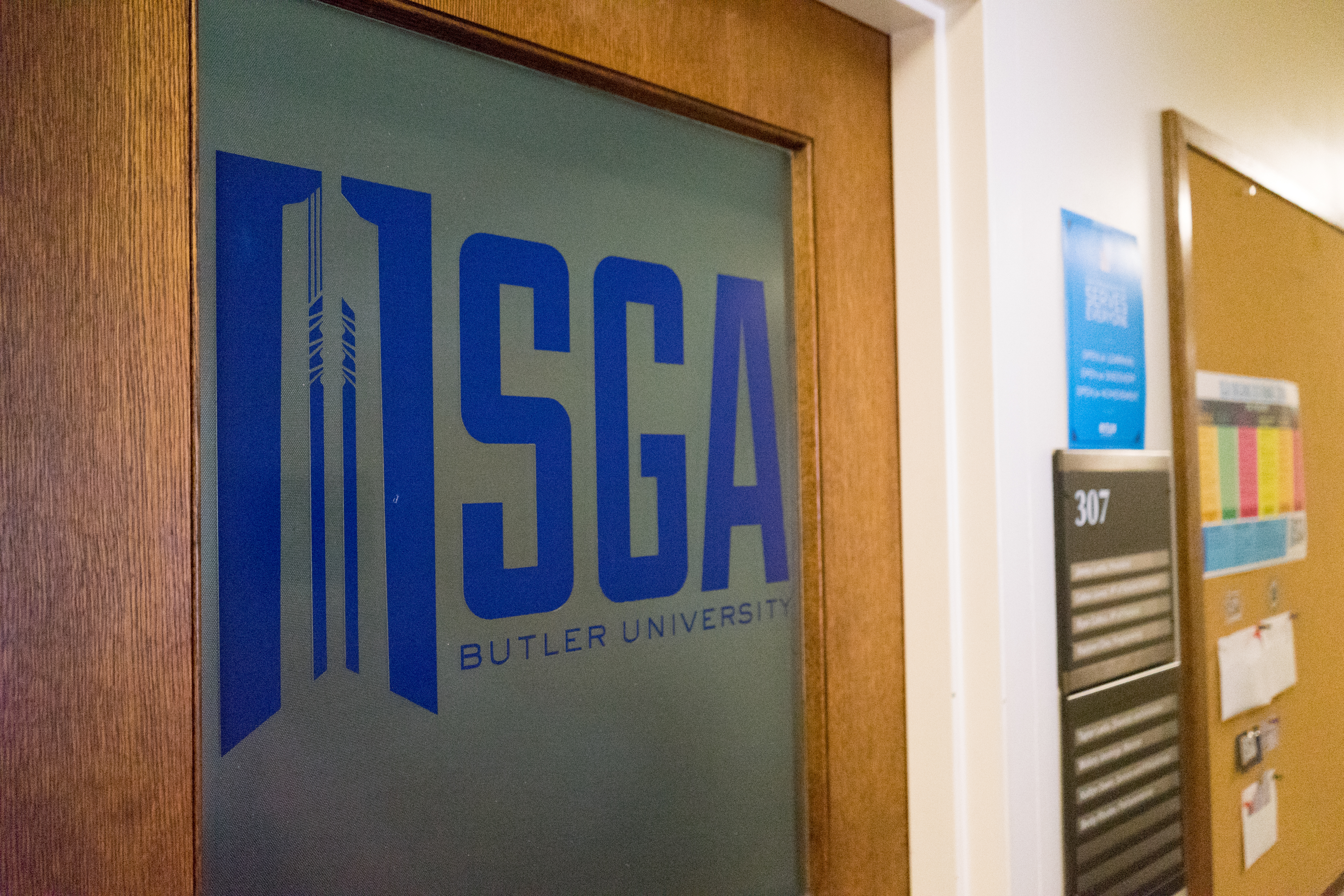SGA provides updates for the spring 2021 semester. Collegian file photo.
DAVID CLARK | STAFF REPORTER | daclark1@butler.edu
Throughout the COVID-19 pandemic, Butler’s Student Government Association has continually worked to overcome challenges — sometimes innumerable. During a year when the student population has frequently dealt with uncertainty, Butler SGA has striven to continue providing students with representation and resources.
In the fall 2020 semester, the body initially struggled to develop student events that adhered to university restrictions. Now, SGA has learned what events they have the capacity to hold, and are consistently providing content to students.
Traditionally, Butler’s SGA would have held late-night events like Cookies and Canvas or a murder mystery. But with county and university limitations on mass gatherings indoors, student organizations may allow no more than 25 people at any time. That restriction has led to student government instituting more grab-and-go events than were previously organized.
Tory Combs, acting student body president at the time of her interview, said that SGA has tried to remain attentive to the types of needs students have, especially when it comes to programming. Combs rose to the position after elected president Maya Patel went on personal leave earlier this semester, and Patel has since returned to her position.
“I think right now obviously it’s more challenging than ever,” Combs said. “But there’s a lot of people doing great work to make sure those student experiences are still happening.”
In discussions Combs has held with different members of SGA’s programming board and university representatives, they have tried to work in new ways to create programming which would be accessible to students and adhere to campus guidelines.
For example, multiple events through SGA’s Diversity, Equity and Inclusion Board were conducted throughout last semester. Combs said the online nature of these events has lent itself well to discussion and group engagement, in a way similar to previous in-person experiences. Programming like “Brave Dialogues” and “Episodes: Debunked” will continue over the semester. Future events considered by the programming board include bringing an illusionist or comedian to campus.
Grace Lansden, the head of SGA’s late night programming board, has been part of hosting other events meant to engage the entire campus population.
Lansden has contributed to the stuff-a-bulldog events that SGA has offered over the past few months, as well as an altered version of blacklight bingo. Where previous years have seen a large student gathering in the Reilly Room, SGA created separate shifts for blacklight bingo that have allowed a greater number of students to participate while still abiding by COVID-19 restrictions.
Lansden also gave indication that SGA would be creating a suggestion box for students to submit proposals for programming they would like to see implemented this semester.
Changes may also be coming to SGA after a resolution to alter the apportionment of student senators was brought forth for discussion.
Alex Spanenberg, the chief justice of SGA’s supreme court, explained that the proposal would shift the timeline of senate elections as well as adjust the number of academic senators per each academic college population.
Under the current SGA constitution, the senate is composed of 40 senators, including eight designated by academic year, 12 by academic college and 20 with respect to campus residence location. The most recent proposal would see one student senator per academic college and additional senator for every 500 students within a college.
“In order for us to change and to have a more effective body that’s centered around advocacy, we really need to change how the senate constituencies are aligned,” Spanenberg said.
This shift comes after Butler SGA hired a consulting firm last academic year to advise on what student government could do to improve their internal operations. The two main takeaways: revised senate numbers and spring elections.
“I’m really hoping that we’re going to be able to boost our voter turnout,” Spanenberg said. “Let’s face it — when we have a fall senate election where there’s all but a few seats that are unopposed, you know, there’s really no reason to go vote.”
Spanenberg said moving senate elections to coincide with SGA’s presidential election in the spring should also help candidates better cater to the needs and demands of constituents. As chief justice, Spanenberg also expressed excitement about the creation of onboarding materials, which he would help draft for elected students to review during the summer.
No decision has yet been reached on the proposal for these changes, but Spanenberg indicated his support for the resolution. Senate discussion of the proposal has continued over the past few senate meetings.
Should the resolution pass the senate, applicable changes to election dates could come as early as this semester. Modifications to numbers senator representation would take effect beginning fall 2021.



